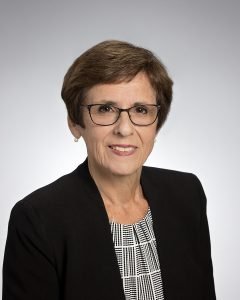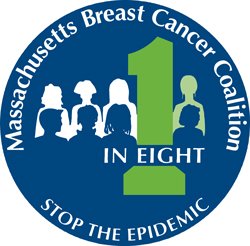 Dear Friends in Prevention,
Dear Friends in Prevention,
I hope that this letter finds you and your loved ones safe and well.
Despite the many challenges we have all faced in 2020, Massachusetts Breast Cancer Coalition (MBCC) has continued to stay focused on the prevention of environmental causes of breast cancer through community education, research advocacy, and changes to public policy.
Locally, MBCC has been reaching out to support educators, parents, and students as they navigate hybrid and remote learning models to start the new school year. The Let’s Talk Prevention: Actions You Can Take educational program offers age-appropriate materials for high school, middle school, and elementary school students across four subject areas: PFAS (Per- and Polyfluoroalkyl Substances) water contamination, household toxins, cell phone radiation, and understanding tap water. The LTP educational materials are free to download from the MBCC website and are designed to be used both in and outside of the classroom.
As one of the community partners on the URI STEEP Superfund Research Program, MBCC is working on developing a monthly series of “PFAS in the Community” virtual presentations starting this fall to bring together STEEP researchers and community members. Although STEEP’s study of PFAS in Cape Cod private wells has been on hold due to the pandemic, private well-owners can still sign up to get their wells tested for PFAS. MBCC has also been hard at work to find space for a field office in Hyannis in support of the Silent Spring Institute-led PFAS and Your Health Study, an investigation of the health effects of PFAS exposure from drinking water among adults and children in Hyannis and Ayer. MBCC is a community partner on this study, which is part of a multi-site health study supported by the Centers for Disease Control and Prevention and the Agency for Toxic Substances and Disease Registry. The field office is scheduled to open in November 2020. MBCC is also a community partner on the PFAS-REACH study and is helping to engage community members in Hyannis to recruit families with preschool-age children as part of an investigation of PFAS exposures on children’s immune systems. While the pandemic has slowed the pace for all of these research studies, MBCC, Silent Spring Institute, and our other research and community partners are carrying on this important work.
We are grateful for MassDEP’s leadership in working towards PFAS regulation by setting MCLs for 6 PFAS at a combined 20 ppt. In the absence of EPA leadership to set MCLs for PFAS, MassDEP has taken a proactive and progressive approach to reduce PFAS exposure to communities across the state of Massachusetts. Given what we know about the harmful effects of PFAS at low levels, communities ultimately want the entire class of PFAS regulated as a class at 1ppt or less and the 20 ppt MCL for 6 PFAS is a big step in the right direction to protect public health. We applaud this important and significant milestone in PFAS regulation in Massachusetts and will continue our advocacy on working towards PFAS regulation as a class and at much lower levels in the future. Now that MassDEP has finalized its drinking water standard, they are looking at screening for PFAS in residuals from wastewater treatment as a way to prevent PFAS from sewage treatment plants from getting out into the environment in the first place. MBCC is participating in the MassDEP stakeholder meetings and will keep our supporters updated.
MBCC also continues its partnership with leading scientists, educators, and community leaders to provide the public with access to important health information through the successful MBCC Webinar Series. We have been proud to offer a series that touches on a range of issues this year from PFAS contamination to the after-effects of breast cancer treatments, from disparities and inequities in breast cancer care to how PFAS activism shapes public policy. We look forward to hosting Dr. Laurel Schaider, Research Scientist at Silent Spring Institute on October 20th for “PFAS Effects on the Immune System: What do we know and what are the links to COVID-19”. In November, we look forward to hosting a panel discussion on PFAS in food packaging with Dr. Schaider, Dr. Arlene Blum, Executive Director of Green Science Policy Institute, and Dr. Maricel Maffini on November 12. Dr. Michael Misialek, Associate Chair of Pathology at Newton-Wellesley Hospital and MBCC Medical Adviser will discuss updates in breast cancer pathology on November 18. We are finalizing the speaker line-up for 2021 and look forward to having Dr. Gwen Collman from the National Institute of Environmental Health Sciences kick off our 2021 Series.
All of us at MBCC are deeply touched and inspired by those of you who were able to support the Against the Tide virtual events or ran the “at home” edition of the Falmouth Road Race as a part of the MBCC Road Race Team. We recognize the challenges of fundraising in these difficult times and are grateful to all of our volunteers, participants, team members, and sponsors who came together in support of MBCC’s mission. While the future feels highly uncertain, MBCC’s commitment to effect change to improve the lives of those around us remains steadfast. Together we will continue to work to create a better world for our children, grandchildren, and future generations.
“Never doubt that a small group of thoughtful, committed, citizens can change the world. Indeed, it is the only thing that ever has.” – Margaret Mead
With caring gratitude,

